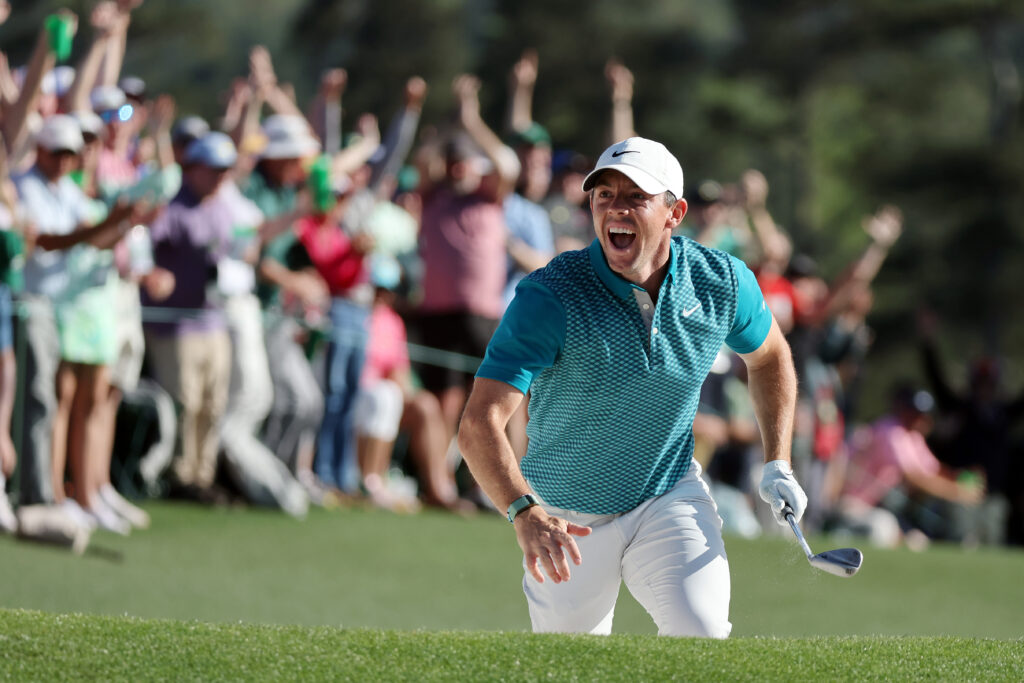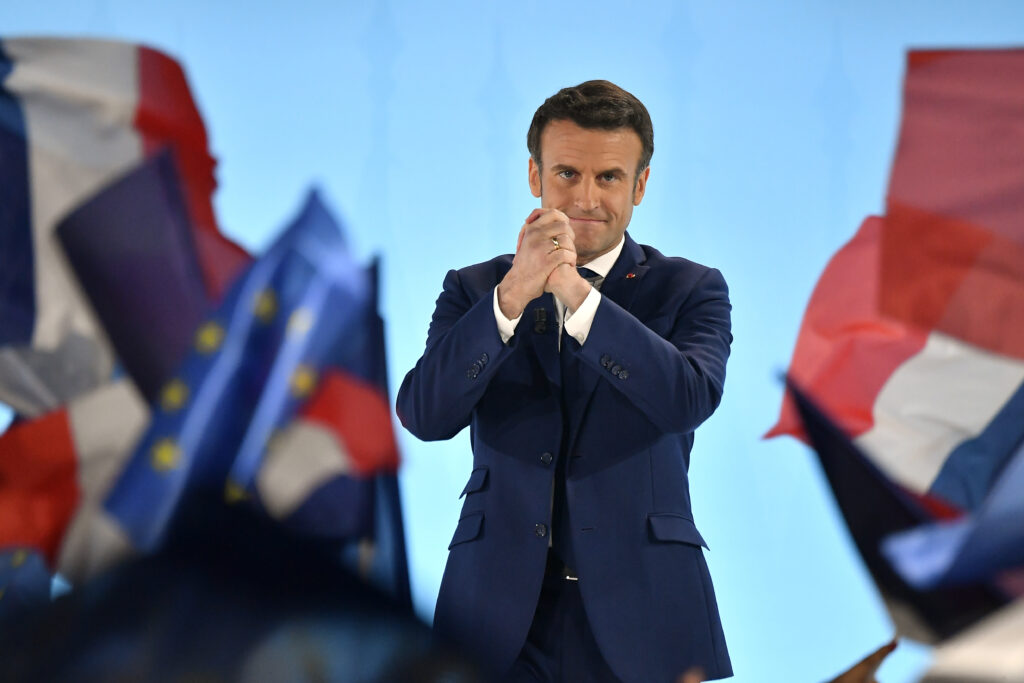Pep Guardiola's Manchester City and Trent Alexander-Arnold's Liverpool clashed in a crucial top-of-table duel on Sunday evening. (Photo by Michael Regan/Getty Images)
If you think armchair sports addicts had a long, tough weekend, spare a thought for those among us channel hopping not only between Manchester City versus Liverpool and coverage of The Masters, but also the first leg of the French Presidential elections, which went straight into a knock-out round.
Ten of the challengers missed the cut; only the top two left in the competition. Second leg in two weeks; away goals won’t count double.
It really was Super Sunday.
An English Premier League “decider” – would Manchester City or Liverpool prevail? The final round of the Masters — could Tiger Woods perform a “miracle” and win after nearly losing a leg in a car accident 14 months ago? Could the political leader widely regarded as being the one adult in the room at the time of the greatest European security crisis since the end of World War II — Emmanual Macron — win again?
There were some difficult choices. Leaving the Augusta National for an hour or two to watch the presidential candidates speak after the polls closed meant missing a crucial chunk of Rory McIlroy’s charge.
 Rory McIlroy reacts after chipping in for birdie from the bunker on the 18th green during the final round of the Masters at Augusta National Golf Club on Sunday in Augusta, Georgia. (Photo by Gregory Shamus/Getty Images)
Rory McIlroy reacts after chipping in for birdie from the bunker on the 18th green during the final round of the Masters at Augusta National Golf Club on Sunday in Augusta, Georgia. (Photo by Gregory Shamus/Getty Images)
Rory was back to being Rory. Finally — after almost a decade of disappointment following the glorious opening chapter to his career in which he won four majors before the age of 25.
“The most fun I’ve had on a golf course in years”, he admitted afterwards, having carded his lowest-ever Masters score of 64.
He played brilliantly. But I missed it because instead I listened to Emmanuel Macron being Emmanuel Macron. He looked pretty pleased with himself, having scored 28% of the popular vote.
He didn’t say that it was the most fun he’d had in an election for many years, but he had the self-satisfied look of a man who’d spent most of the campaign on the phone to Vladimir Putin rather than touring the town halls of France and who had still ended up a couple of shots under the opinion pollsters’ projected par.
But the play-off on 24 April will be against the perennial peril posed by Marine Le Pen, the far right-winger, who, according to said opinion pollsters, had closed the gap with Macron to just a couple of percentage points in the past week. This is partly because the cost of living has surged as a result of the war in Ukraine that Macron has invested so much time and effort trying to avert and then end.
Right on cue, halfway through an enthralling contest between City and ’Pool, a plane flew over the Etihad Stadium trailing a banner claiming that “Britons will be in a minority by 2066”.
Presumably a lazy copy editor had failed to write in, or perhaps had edited out, a rather pivotal word: “white”. And although the author had failed to make it entirely clear, one could also presume that this projection was not being presented as a “good thing”.
In Paris, Macron’s speech failed to match his buoyant mood. He spent an awful lot of time congratulating his opponents on the fairness of their fight. Le Pen devoted hers to attacking Macron’s elitist out-of-touchism, which is a textbook tactic straight out of the modern populist’s playbook.
But Macron has that certain something. Call it charisma. And certainly self-confidence.
 Emmanuel Macron addresses voters after leading the first round in the polls on Sunday in Paris, France. (Photo by Aurelien Meunier/Getty Images)
Emmanuel Macron addresses voters after leading the first round in the polls on Sunday in Paris, France. (Photo by Aurelien Meunier/Getty Images)
Top-drawer politicians need both in abundance if they are to make it to the top of Disraeli’s greasy pole. Sportsmen only need the latter. Charisma is a luxury item — even for the fan or viewer. Take the man who beat McIlroy into second place at the Masters — Scott Scheffler. Superb golfer: hits the little white ball a country mile (well, 385 yards); ice runs through his veins. But dull as dishwater.
Apparently, in his spare time he likes to play board games with his wife, which rather says it all.
Although it’s tempting to think that, like cars and contemporary pop music, blandness is the order of the modern day, the truth is that for every “charismatic” sporting champion there has always been at least two bland ones.
For every John McEnroe or Jimmy Connors there was a Bjorn Borg or an Ivan Lendl. Just as for every Shane Warne there is a Nathan Lyon, and for every Hershel Gibbs there’s a Jacques Kallis.
Scheffler looks like the golfing equivalent of tennis’s Pete Sampras. A very well-oiled sporting machine but not a man you’d want to have a few pints with.
Which begs the question: does sport need “charismatic” players or just extremely good ones to make it the spectacle that it is?
Discuss.
Is it the competition or the competitors? Is it the human character of the player or the quality of the match that matters most?
Answers on the back of a postcard, please.